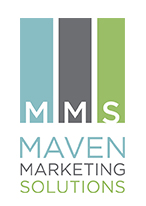In business—and in life—how you treat people has always mattered. Respect, empathy, and fairness aren’t just “nice to haves”; they’re the foundation of trust and long-term success. In the age of AI—where technology is rapidly transforming industries—the stakes are even higher.
Artificial intelligence can automate tasks, optimize workflows, and analyze data faster than any human. But what it cannot replace is the human connection. How you treat employees and clients is no longer just a cultural statement—it’s a direct driver of financial performance.
The True Cost of Disrespect
Respect as a Business Strategy
The companies that thrive in the AI era will be those that double down on humanity. Respect is not a “soft skill”—it’s a measurable business strategy:
- Client Retention – Respect builds loyalty, reducing churn and protecting revenue streams.
- Employee Engagement – Respect fuels motivation, productivity, and performance while cutting turnover costs.
- Brand Reputation – Respect strengthens credibility, attracting customers and top talent.
- Competitive Edge – Respect fosters collaboration, innovation, and adaptability—key differentiators in fast-changing markets.
The Human Advantage in an AI World
AI is powerful, but it has limits. It can mimic empathy in tone but not deliver the depth of a genuine human connection. People remember how you make them feel long after they’ve forgotten what you sold them. Treating employees and clients with dignity, transparency, and care is not only ethical—it’s profitable.
The Bottom Line
Machines may power the future, but people will decide whether that future is trusted, fair, and sustainable. Disrespect carries a heavy price: lost clients, higher turnover, stifled innovation, and reputational harm. Respect, on the other hand, compounds in value—creating loyalty, sparking ideas, and driving long-term growth. Every interaction is a choice. Leaders must ask themselves: What will this cost us if we get it wrong—and what could it earn us if we get it right?
Because in the age of AI, how you treat people is more than a moral decision—it’s a business imperative.




